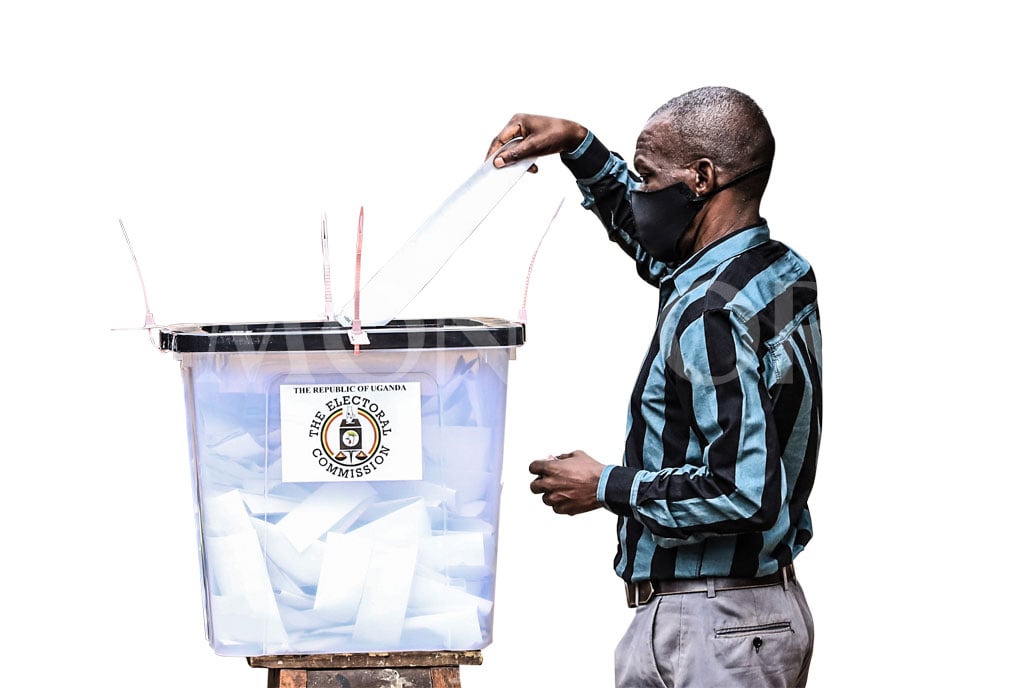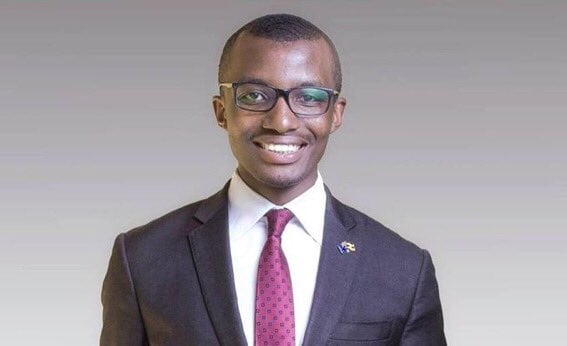71% Ugandans want presidential age, term limits reinstated - survey

In this file photo, posters of two most popular candidates for Uganda's Presidential election, incumbent President Yoweri Museveni (L) and Robert Kyagulanyi, aka Bobi Wine, the pop star-turned-opposition leader, are seen along a street in Kampala, Uganda, on January 6, 2021. PHOTO/FILE/AFP
What you need to know:
- Ugandans next go to the ballot in 2026 but uncertainty persists regarding if 79-year-old President Museveni will be seeking a seventh 5-year term.
Majority Ugandans want presidential age and term limits reinstated, a survey by a research organization has revealed.
Of the 2,400 adult respondents sampled from 119 districts, 71 per cent supported the return of term limits, and 80 percent want both the minimum and maximum age limits reinstated, both as building blocks of democracy.
“A majority of Ugandans remain supportive of these limits on the executive,” the report by Hatchile Consult observes.
Presidential term and age limits were expunged from the Constitution in 2005 and 2017 respectively. Political activists and opposition politicians have since pushed for their restoration, alongside multiple electoral reforms they hope can improve governance.
Speaking during the release of the new findings in Kampala on Wednesday, lead researcher Francis Kibirige reported that the current number of Ugandans who want the return of term limits has dropped from 85 per cent in 2012.
Dr Gerald Karyeija, an associate professor of Public Administration and dean of the School of Management Sciences at Uganda Management Institute, attributed the drop to possible despair but believes the number is still high enough.
“Members still feel that there should be an age limit and term limits. I suspect one of the reasons for the drop is because either they feel that nothing else can happen so it is something they are getting used to. But still it is high, meaning it is preferred,” he noted.
He added: “But when you look at other democracies without term limits, it could be more about the person of President Museveni than it is as a principle of democracy because the same is not being demanded at parliamentary level.”
Still on Wednesday, former Leader of Opposition in Parliament Winnie Kiiza welcomed the citizens’ demand for the constitutional checks.
“This was envisaged by the constituency assembly to prevent the situation of a sole leader, and the survey supports this. It is supported across all ages and the leaders should act on this. That is why we proposed a constitutional review to comprehensively address such concerns including matters of human rights, and democracy,”
She added: “We remain hopeful that as pledged by the minister for constitutional affairs, these reforms will be tabled in the remaining two years—to elections. If not, we may see [coups] like what has happened in countries like Mali, Bukinafaso,”
Hatchile Consult findings are part of a wider research on the State of Democracy in Uganda and Africa. They reveal a downward trend in how Ugandans appreciate democracy.
“The data shows that the proportion of Ugandans, who demand, prefer democracy as a means of governance is reducing. And similarly, we have found that Ugandans who are satisfied with how democracy works are also reducing. The reduction even though small is worrying …if you have a people who don’t prefer democracy, what are they preferring,” Kibirige wondered.
The shift in opinion, from the researchers found is most influenced by the economic dynamics
“They [respondents] look at democracy in the context of what they get out of it. If we are democratic, how come I do not have food, a job, and can't afford things? We feel we can help to improve the situation if for instance we build very efficient public services infrastructure,” Kibirige added.
Ugandans next go to the ballot in 2026 but uncertainty persists regarding if 79-year-old President Museveni will be seeking a seventh 5-year term.




